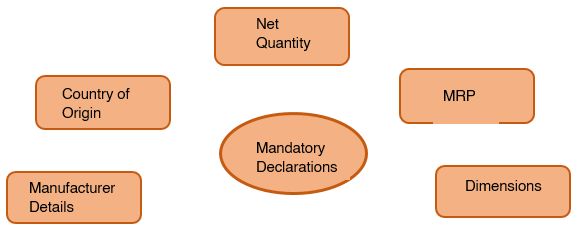
ALA is a boutique commercial law practice offering end-to-end corporate-commercial legal solutions to Indian and foreign businesses. We offer a wide range of services tailored across sectors for private clients, startups and mature businesses. We have a cost-effective technology based model supported by a large network of associates. Commercial transactions and advisory is our forte, which includes contract management and standardization. Our disputes profile is advising and strategizing from a pre-dispute stage, and managing and driving the litigation across all courts and tribunals including the High Court, the NCLT and SAT
E-commerce is an online based business model which have been set up for providing the consumers an online market portal used by people for buying and selling the products and the services.
India Consumer Protection
E-commerce is an online based business model which have been set up for providing the consumers an online market portal used by people for buying and selling the products and the services. The Consumer Protection Act, 2019 defines, the term as, "buying or selling of goods or services including digital products over digital or electronic network." Thus, e-commerce usually functions using a lot of electronic services itself like the internet services, electronic funds transfer services, electronic data exchange etc. Since in India a large percentage of products and services are availed through electronic means in an online environment (especially in the present pandemic / lock – down ridden world), the laws that govern its functioning to keep checks and balances are to be oriented.
The most commons business models facilitated by e-commerce are:
Business to Business (B2B)
B2B describes commerce transactions between various businesses thereby enabling various businesses to build new relationships with other businesses such as between manufacturer and a wholesaler, or between wholesaler and a retailer.
Business to Consumer (B2C)
B2C describes activities of businesses serving end consumers with products and/or services.
Consumer to Consumer (C2C)
C2C involves the electronically facilitated transactions between consumers through some third party. Traditionally consumers have had dealings with other consumers, but only few of those activities were in a commercial sense.
Consumer to Business (C2B)
C2B involves consumers which provide goods/services to businesses and create value for the business.
Business to Business to Consumer (B2B2C)
This is an alternative to the B2C model in which there is an additional intermediary business to assist the first business to transact with the end consumer. For instance, Flipkart which is one of the successful e-commerce portals and which provides a stage for consumers to purchase a wide range of products.
As we now understand the concept of e-commerce, it is very necessary to know that the regulation of this sector in India is very scattered, with a wide gamut of statutory enactments which have been amended / enacted to govern the sector. Nonetheless, there are various statutes that govern e-commerce activities which are divided into broad categories as explained in this post.
There are different provisions under the IT Act which guides the working for the e-commerce. Section 84A of the IT Act cast a duty on the Central Government for the promotion of e-governance and e-commerce. It also has to provide for secures use of electronic mean. Provisions regarding the data protection are contained in Section 43A of the IT Act. Section 66A of the IT Act imposes a penalty in case of theft of identity and provides that whosoever person dishonestly uses the password, identity of other shall be punished with imprisonment that may extend to 2 years or with fine of INR 1,00,000/- or both.
E-commerce entities must comply with the Information Technology (Reasonable security practices and procedures and sensitive personal data or information) Rules, 2011. Intermediary websites and the content they display will govern by the Intermediary Rules 2011, under the IT Act. On 25 February 2021, the Ministry of Electronics and Information Technology (MeitY) notified the Information Technology (Guidelines for Intermediaries and Digital Media Ethics Code) Rules, 2021 ("Rules") in consultation with the Ministry of Information and Broadcasting. The Rules have been issued pursuant to the government's rule making powers under Section 87 of IT Act which includes rules in relation to the guidelines to be followed by intermediaries and blocking of access to content under the IT Act.
The Ministry of Consumer Affairs, Food and Public Distribution has recently notified the Consumer Protection Act, 2019 ( CPA 2019) and the Consumer Protection (E-Commerce) Rules, 2020 ( E-Commerce Rules). The CPA 2019 introduced significant changes to the 1986 consumer protection law, to address unique issues arising in this era of digitization and e-commerce. The E-Commerce Rules provide a framework to regulate the marketing, sale and purchase of goods and services online.
The E-Commerce Rules apply to: (a) all goods and services (including digital products) transacted over an electronic/digital network; (b) all models of e-commerce, including marketplace and inventory models (discussed below); (c) all e-commerce retail (including multi-brand and single brand retail trading); and (d) all forms of unfair trade practices across all e-commerce models. 1
While the E-Commerce Rules apply to e-commerce entities, they do not apply to a natural person if: (a) the activities are performed in a personal capacity; and (b) the activities are not part of any professional or commercial activity that is carried out on a regular or systematic basis. 2 Simply put, where an individual engages in a transaction in a personal capacity and not on a regular or systematic basis for any professional or commercial activity, the E-Commerce Rules will not apply. As a result, natural persons engaged in occasional transactions entailing consumer to consumer or business to consumer interface may be excluded.
Further, the E-Commerce Rules have extra-territorial application on those e-commerce entities which may not be established in India, but systemically offers goods and services to consumers in India. 3 A proposed amendment contemplated by the Ministry of Consumer affairs to the E-Commerce Rules ("Draft Amendment") intends to widen the outreach as well as the list of dos and don'ts for e-commerce entities however, it is presently unclear as to where this amendment is headed. The salient features of the Draft Amendment cover the following:
The Legal Metrology Act defines "E-commerce entity" means a company incorporated under the Companies Act, 1956 or the companies Act, 2013 or a foreign company covered under Section 2(42) of the Companies Act, 2013, or an office, branch or agency in India covered under Section 2(ii)(v) of the Foreign Exchange Management Act, 1999 owned or controlled by a person resident outside India and conducting e-commerce business.
Any e-commerce entity must comply with and meet the standards relating to labelling and packaging set by the Legal Metrology Act, 2009 read with Legal Metrology (Packaged Commodity) Rules, 2011 that state that the online platform must display such mandatory information about the goods on the network, as is required to be displayed on physical packages as well. Display of mandatory information includes:

The e-commerce industry's rapid growth not only reflects the public's growing acceptance of it, but it has also brought to the fore concerns that the country's legal system has been dealing with. The laws for the e-commerce are quite uncondensed of statutes as there is no specific codified law. The companies will need to look at such a perspective of the particular situation for which the laws are to be considered of. To succeed in this field, e-commerce enterprises must have a thorough awareness of the legal regime and the potential challenges that an e-commerce business may encounter, as well as appropriate risk management measures. Further, the regulation of the e-commerce sector is extremely dynamic in nature and comprises of scattered statutory provisions. Hence, any entrepreneurs intending to venture into the e-commerce business must be mindful of the legal/regulatory compliances and accountability expected out of e-commerce activities in India. They must watch each step they take in light of the current eco-system as well as projected future changes.
Footnotes
1. Rule 2(1) of the Consumer Protection (E-Commerce) Rules, 2020
2. Proviso to Rule 2(1) of the Consumer Protection (E – Commerce) Rules, 2020
3. Rule 2(2) of the Consumer Protection (E – Commerce) Rules, 2020
4. Section 10, Indian Contract Act, 1872
The content of this article is intended to provide a general guide to the subject matter. Specialist advice should be sought about your specific circumstances.